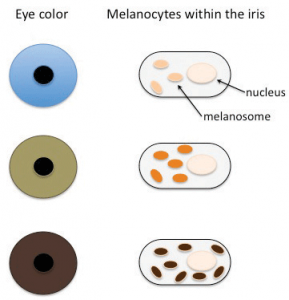I’m sure that almost everyone has heard the saying, “Lightning can’t strike the same place twice!” I’ve always wondered if that was true. It made sense, because I always figured the odds of lightning striking the same location twice was extremely small. Yet, to my surprise, this legend is not true. Lightning does hit the same exact spot more than once.
WeatherImagery reports that the shuttle launch pad at Cape Canaveral in Florida has gotten hit a countless amount of times; sometimes even more than once in the same thunderstorm. The Empire State Building in New York City gets hit by lightning about 25 times per year. Roy Sullivan, a park ranger, has been struck by lightning seven times. Although taller objects are very likely to be struck, they aren’t always the first thing the lightning hits. Sometimes, lightning misses the tall object and hits a house instead, or even the ground.
 According to the National Severe Storms Laboratory, lightning could strike the same place twice because of statistics. For example, there have been so many lightning strikes that somewhere, sometime, it must strike the same spot again. Also, there could be something in the area that’s causing it to strike in that spot. It’s typical that taller objects are more likely to be struck than shorter objects. It’s also possible that there’s something affecting the ability of the ground to conduct electricity, like salt, moisture, rock, water, pipes, or metal in the ground. Other things that affect where lightning strikes are the shape of the terrain and the shape of the leaves and twigs. Because an object has already been struck by lightening, does not mean that it’s impossible for it to be struck again; the chances are just as likely the second time as they are the first time.
According to the National Severe Storms Laboratory, lightning could strike the same place twice because of statistics. For example, there have been so many lightning strikes that somewhere, sometime, it must strike the same spot again. Also, there could be something in the area that’s causing it to strike in that spot. It’s typical that taller objects are more likely to be struck than shorter objects. It’s also possible that there’s something affecting the ability of the ground to conduct electricity, like salt, moisture, rock, water, pipes, or metal in the ground. Other things that affect where lightning strikes are the shape of the terrain and the shape of the leaves and twigs. Because an object has already been struck by lightening, does not mean that it’s impossible for it to be struck again; the chances are just as likely the second time as they are the first time.
http://www.nssl.noaa.gov/education/svrwx101/lightning/faq/
http://www.weatherimagery.com/blog/lightning-strike-twice/
http://science.howstuffworks.com/nature/climate-weather/storms/lightning-pictures.htm
http://www.telegraph.co.uk/earth/earthpicturegalleries/7859013/30-electrifying-pictures-of-lightning-and-thunderstorms.html?image=10









